Day: September 21, 2023
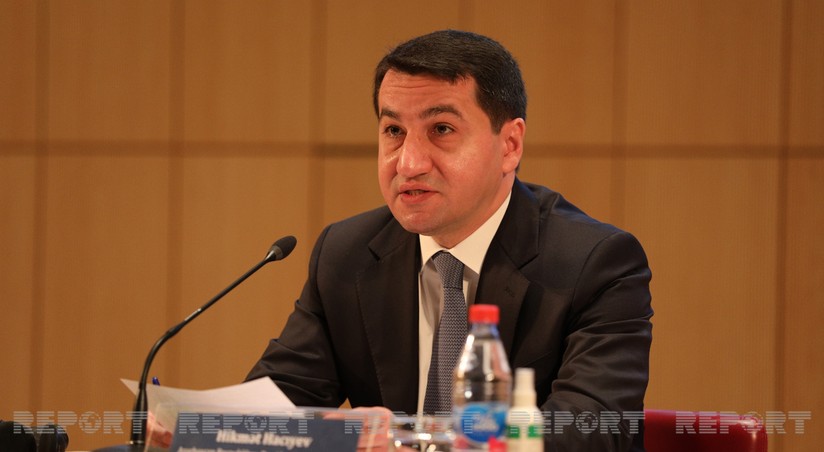
The illegal presence of Armenian armed forces in Karabakh was a serious challenge to regional peace and security, and Azerbaijan had no choice but to take anti-terrorism measures, Assistant to the President of Azerbaijan – Head of the Foreign Policy Affairs Department of the Presidential Administration Hikmet Hajiyev said in an interview with BBC News, Report informs.
“Azerbaijan has always said that illegal presence of the armed forces of the Republic of Armenia continues to remain a major challenge to the regional peace and security. And regardless of this fact the Armenian side refused to withdraw its troops from the sovereign territories of Azerbaijan stipulated by the trilateral statement of November 10, 2020. But Armenia continued military build-up,” he noted.
“Therefore, Azerbaijan was obliged, it’s not our choice, to take counter-terrorism actions and measures on the ground that are local and limited by nature, we are not talking about wide military operation in this case,” he added.
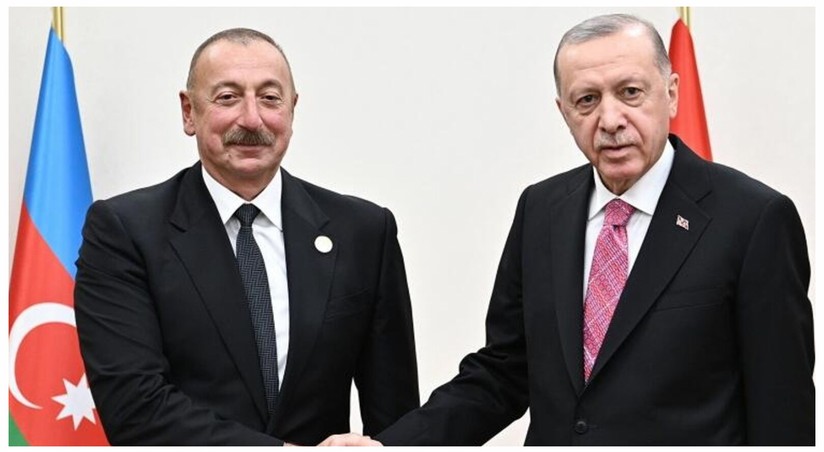
On September 20, President of the Republic of Türkiye Recep Tayyip Erdogan made a phone call to President of the Republic of Azerbaijan Ilham Aliyev, Report informs, citing AZERTAC.
During the telephone conversation, the heads of state exchanged views on the completion of local anti-terrorist measures and the laying down weapons and disarming of illegal armed groups in the Karabakh region of Azerbaijan.
The presidents stressed that Azerbaijan and Türkiye are always stand by each other.
The heads of state exchanged views on issues of mutual interest, including future contacts and prospects for relations of strategic alliance.
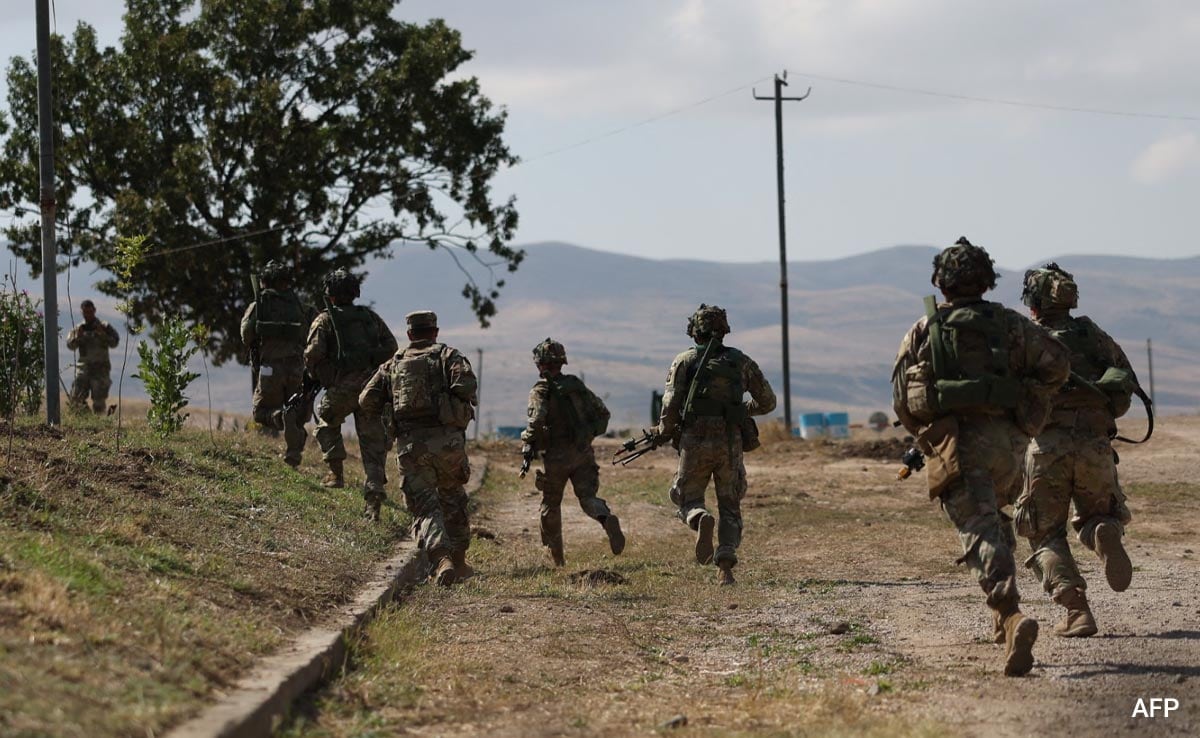
The war left 30,000 people dead and forced hundreds of thousands from their homes.
Baku:
Azerbaijan’s President Ilham Aliyev said Wednesday his country had regained control over breakaway Nagorno-Karabakh, after separatist Armenian fighters agreed to lay down their arms in the face of a military operation.
The stunning collapse of separatist resistance represents a major victory for Aliyev in his quest to bring Armenian-majority Nagorno-Karabakh back under Baku’s control.
Armenia and Azerbaijan have fought two wars over the mountainous region since the collapse of the Soviet Union.
A day after Azerbaijan launched a military operation in the region, Baku and the ethnic Armenian authorities in Karabakh announced a ceasefire deal had been brokered by Russian peacekeepers to stop the fighting.
“Azerbaijan restored its sovereignty as a result of successful anti-terrorist measures in Karabakh,” Aliyev said in a televised address.
Aliyev claimed that most of the Armenian forces in the region had been destroyed and said the withdrawal of separatist troops had already begun.
Under the truce deal, the separatists said they had agreed to fully dismantle their army and that Armenia would pull out any forces it had in the region.
Azerbaijan’s defence ministry said that “all weapons and heavy armaments are to be surrendered” under the supervision of Russia’s 2,000-strong peacekeeping force on the ground.
Both sides said talks on reintegrating the breakaway territory into the rest of Azerbaijan would be held on Thursday in the city of Yevlakh.
Russian peacekeepers said Wednesday evening that the ceasefire was holding and there were no violations recorded.
Baku’s operation marked the latest spasm of violence over the rugged territory.
After the Soviet Union fell apart, Armenian separatists seized the region — internationally recognised as part of Azerbaijan — in the early 1990s and it is home to some 120,000 ethnic Armenians.
The war left 30,000 people dead and forced hundreds of thousands from their homes.
In a six-week war in 2020, Azerbaijan recaptured swathes of territory in and around the region.
The years of conflict have been marked by ethnic cleansing and abuses on both sides, and there are concerns of a fresh refugee crisis as Karabakh’s Armenian population fears being forced out.
Azerbaijani presidential foreign policy advisor Hikmet Hajiyev promised safe passage for the separatists who surrendered and said Baku sought the “peaceful reintegration” of Karabakh Armenians.
Charles Michel, president of the EU’s Council of Europe, urged Baku to ensure the safety of the local population.
Russian President Vladimir Putin said he hoped for a “peaceful” resolution, adding that Moscow has been in contact with all sides in the conflict.
Putin held talks with Armenian Prime Minister Nikol Pashinyan Wednesday evening, but the Kremlin insisted the crisis was “Azerbaijan’s internal affair”.
– ‘War is over’ –
Jubilant residents in Azerbaijan’s capital expressed hope the deal heralded a definitive victory in — and the end of — the decades-long conflict.
“I was very happy with this news. Finally, the war is over,” 67-year-old pensioner Rana Ahmedova, told AFP.
Armenia said at least 32 people were killed and more than 200 wounded by the shelling in Karabakh, as the latest onslaught from Azerbaijan saw artillery, aircraft and drone strikes rock the region.
Moscow said several of its peacekeepers in Karabakh were killed when the car they were travelling in came under fire.
In Yerevan, Pashinyan said it was “very important” the ceasefire hold.
Again denying his country’s army was in the enclave, he said he expected Russia’s peacekeepers to ensure Karabakh’s ethnic-Armenian residents could stay “in their homes, on their land”.
The loss in Karabakh ratchets up domestic pressure on Pashinyan, who has faced stinging criticism at home for making concessions to Azerbaijan since the 2020 defeat.
The Armenian leader insisted that his government had not been involved in drafting the latest ceasefire deal.
Thousands of protesters waving the separatist region’s flag blocked a main road in Armenia’s capital Yerevan as riot police protected official buildings.
“We are losing our homeland, we are losing our people,” said Sargis Hayats, a 20-year-old musician.
Pashinyan “must leave, time has shown that he cannot rule. No one gave him a mandate for Karabakh to capitulate,” he said.
– International pressure –
The ceasefire announcement came after Aliyev warned the military operation would continue until the separatists laid down their weapons, despite international pressure to halt fighting.
The outburst of fighting came as Moscow, the traditional power broker in the region, is bogged down and distracted by its war on Ukraine, which has left it isolated by the West.
But its peacekeepers there appeared to have played a key role in helping to negotiate the ceasefire and will now oversee its implementation.
Turkey, a historic ally of predominantly Muslim Azerbaijan that views mostly Christian Armenia as one of its main regional rivals, had called the operation “justified”.
The EU and United States have been mediating talks between Baku and Yerevan in recent months aimed at securing a lasting peace deal between the two foes.
(Except for the headline, this story has not been edited by NDTV staff and is published from a syndicated feed.)

Georgian Prime Minister Irakli Garibashvili on Wednesday told Czech President Petr Pavel his country “deserved” the European Union membership candidate status, and added obtaining the status later this year could further contribute to a “stable” development of Georgia.
The meeting, held on the sidelines of the 78th session of the United Nations General Assembly in New York, also discussed the Georgian Government’s work to meet the conditions outlined by the bloc last year for granting Tbilisi the status, the Georgian Government press office said.
Had a productive meeting w/ the President of the ????????, @prezidentpavel. Discussed range of issues concerning ???????????????? bilateral partnership, ????????’s progresses on its path toward European integration & its candidacy status in the ????????. pic.twitter.com/7wBoR35ucH
— Irakli Garibashvili (@GharibashviliGe) September 21, 2023
Extending his gratitude to the Czech Government for its “firm” support for Georgia’s EU aspirations, the PM expressed hopes the country’s “political and practical support” would help Tbilisi in the next stages of joining the EU.
The officials also discussed the existing cooperation and prospects to further strengthen ties, before evaluating security challenges caused by the ongoing Russia-Ukraine conflict, the press office added.

Thousands of protesters gathered in the Armenian capital on Wednesday (20 September) to denounce the Armenian government’s perceived failure to support Armenian separatists in Karabkh, after the breakaway region was forced into a humiliating surrender by Azerbaijan.
The protesters gathered on Republic Square in the heart of Yerevan. Many demanded the resignation of Armenian Prime Minister Nikol Pashinyan, who presided over defeat to Azerbaijan in a 2020 war, and now the final collapse of Karabakh’s Armenian authorities.
Harut, a 32-year-old solar engineer said: “We hope he leaves. It’s better for a leader who lost the war to leave than to stay and continue.”
He said that the defeat was all the more painful given how long Armenians had fought for Karabakh.
“It’s something that we’ve been fighting for for 30 years, for more than 30 years and now it all went for nothing.”
Opposition politicians gave speeches from a stage denouncing Pashinyan, who took power in a 2018 revolution during which he addressed rallies on the same square.
Some of those in Republic Square yelled “Artsakh!”, others “Nikol is a traitor!”
Many of those attending waved Nagorno-Karabakh flags and some scuffled with police. Others threw bottles and stones at the prime minister’s office on Republic Square.
Riot police sealed off the government offices, while military-style trucks were parked near the square amid a heavy security forces presence.
Azerbaijan said on Wednesday that it had halted its offensive after Armenian separatist forces in Nagorno-Karabakh agreed to a ceasefire – whose terms signalled the area would return to Baku’s control.
Armenians, who are Christian, claim a long historical dominance in the area, which they call Artsakh. Azerbaijan, whose inhabitants are mostly Muslim, links its historical identity to the territory too.
Samvel Sargsyan, 21, a student at the Theatre and Cinema University in Yerevan, who was born in Karabakh’s capital, known to Armenians as Stepanakert and to Azeris as Khankendi.
“We need Armenia to join up with Artsakh and fight,” he said.
“Armenians can’t accept another country, another religion. Why should we? Why should Armenia give a part of itself to another nation?”
Sargsyan, who was holding the red, blue and orange flag of Artsakh, added: “If we lose Artsakh, we lose Armenia. Because the next step will be Armenia.”
Another protester, Khachatur Kobelyan, said he was “really shocked with aggression of Azerbaijan on Nagorno-Karabakh”.
“I think that the UN, USA and Russia, they are the players that could do something, but I’m really very disappointed and I don’t see any hope connected with this solution.”
Armenia is member of the Russian-led Collective Security Treaty Organization (CSTO), a defense alliance which failed to act in support of Yerevan.
Pashinyan has publicly accused Russia in recent months of not doing enough to support Armenia. He said on Tuesday that unidentified forces were talking about a coup in Yerevan.
Azerbaijan said that it wanted a “smooth reintegration process” for Karabakh’s Armenians, and rejected Armenian accusations that it wanted to “ethnically cleanse” the region.
Many of those on the square evoked the memory of the Armenian genocide of 1915, referring to the massacres of Armenians under the Ottoman Empire.
Read more with EURACTIV

When fierce fighting erupted in late September in and around Nagorno-Karabakh, a mountainous region of the South Caucasus, it fanned the flames of a centuries-old dispute. The clash is the latest in a series of tumultuous battles over who can claim the disputed enclave, a question shaped in modern times by the rise and fall of the Soviet Union.
Officially, the 1,700-square-mile territory is part of Azerbaijan and is known by its Russian name, which translates to “mountainous Karabakh.” But to Armenians and the Armenian-majority population of the region, it’s known as the Nagorno-Karabakh Republic, a de facto independent state that has been outside of Azeri rule since 1988.
For centuries, Muslim Azerbaijanis and Christian Armenians, both of whom call the region home, clashed over who should control it. Russian rule began in 1823, and when the Russian Empire dissolved in 1918, tensions between newly independent Armenia and Azerbaijan reignited. Three years later, Communist-controlled Russia set its sights on the independent states of the Caucasus region and began incorporating them into what would become the Union of Soviet Socialist Republics.
At first, it was decided that Karabakh would be part of the Armenian Soviet Socialist Republic (S.S.R.). Though historians differ on the reasons, the initial incorporation of Karabakh into Armenia is thought to have been a plan to ensure Armenian support of Soviet rule. But the Soviets’ new Commissar of Nationalities, Joseph Stalin, reversed the decision. In 1923 Nagorno-Karabakh became an autonomous administrative region of the Azerbaijan S.S.R., even though 94 percent of its population at the time was ethnic Armenian.
Though ethnic Armenians complained that Azerbaijan restricted their autonomy and claimed Azerbaijan discriminated against them, the Soviet Union was intolerant of ethnic nationalism and ignored a variety of protests against the status quo.
As the Soviet Union disintegrated in the late 1980s, the long-dissatisfied ethnic Armenians of Nagorno-Karabakh petitioned to become part of the Republic of Armenia. Azerbaijan responded by trying to crush the separatists in 1988, and clashes intensified in the region. In 1991, both Azerbaijan and Armenia declared independence from the U.S.S.R., and the regional clashes in Nagorno-Karabakh flared into full-out war.
As a result, more than a million people became refugees, and around 30,000 people, including civilians, were killed. Both sides engaged in ethnic cleansing during the Nagorno-Karabakh War—the Azerbaijanis against ethnic Armenians, and Armenian forces against ethnic Azeris. Despite the brutal humanitarian toll, negotiations between the sides repeatedly broke down.
In 1994, the newly independent nations of Armenia and Azerbaijan signed the Bishkek Protocol, a ceasefire brokered by Russia that left Nagorno-Karabakh in Azerbaijan. But though the fighting ceased, the two sides could not agree on a peace treaty.
For the last two and a half decades, Armenian and Azerbaijani troops have been divided by a contested “line of contact” laid out in the Bishkek Protocol. It has become increasingly militarized over the years, and has been called one of the world’s three most militarized borders. The Council on Foreign Relations says that given the close positioning and limited communication between military forces stationed there, “there is a high risk that inadvertent military action could lead to an escalation in the conflict.”
That’s of even greater importance because of the conflicted nations’ powerful allies. Azerbaijan is supported by NATO member Turkey, while Russia supports Armenia, making the area a potential conflagration zone. While Nagorno-Karabakh is small, the geopolitical stakes are high due to its proximity to strategic oil and gas pipelines, and its location between the powerful regional forces of Russia, Turkey, and Iran.
These nations could be drawn into the conflict and its rising death toll. Iran, which borders Azerbaijan and Armenia and has complicated relationships with both, has weighed in, warning of a “regional war,” complaining of rockets and shells striking inside its territory and placing its own troops near its border.
Can the region overcome centuries of conflict? Only time will tell—and multiple negotiated ceasefires have already been promptly broken. As the world worries about a full-scale Russo-Turkish proxy war, the people of Armenia and Azerbaijan will continue to wrestle with the regional and historic forces that have kept them intertwined, and in conflict, for so long.
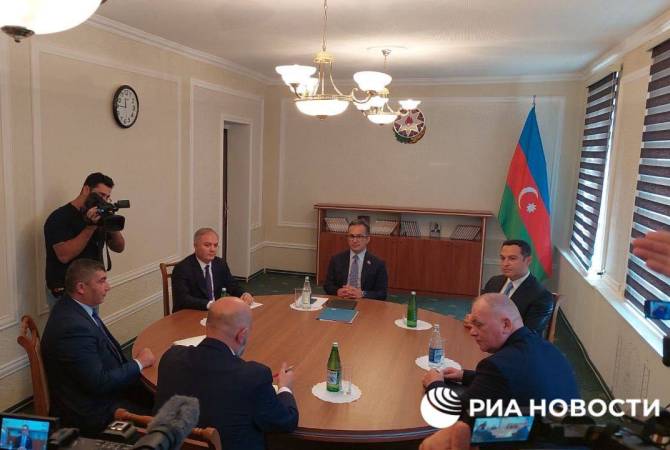
11:55, 21 September 2023
YEREVAN, SEPTEMBER 21, ARMENPRESS. The meeting between Nagorno-Karabakh authorities and Azerbaijani government representatives is underway in Yevlakh under the terms of the September 20 ceasefire deal, RIA Novosti reports.
The Nagorno-Karabakh delegation, comprised of Member of Parliament Davit Melkumyan and the Deputy Secretary of the Security Council Sergey Martirosyan, is escorted by the Russian peacekeepers.
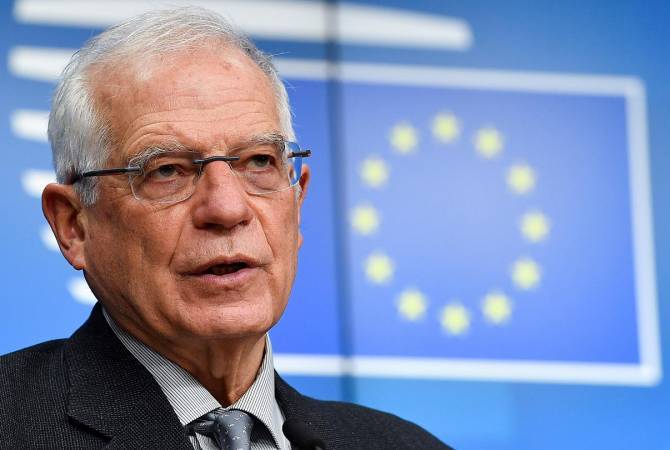
12:00, 21 September 2023
YEREVAN, SEPTEMBER 21, ARMENPRESS. High Representative of the European Union for Foreign Affairs and Security Policy Josep Borrell is sending EU’s Special Representative for the South Caucasus and the crisis in Georgia Toivo Klaar to the region after the Azeri military operation against Karabakh Armenians.
“In view of the military operation by Azerbaijan against Karabakh Armenians, I have decided to send EUSR Toivo Klaar to the region. He will report back on the state of play,” Borrell said on X.
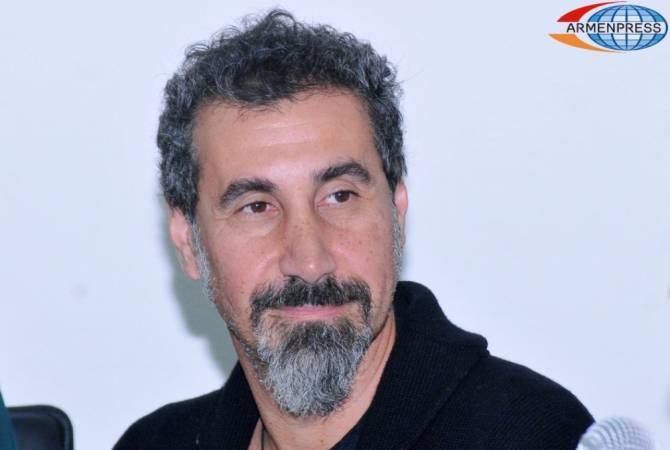
12:07, 21 September 2023
YEREVAN, SEPTEMBER 21, ARMENPRESS. Armenian-American musician, System of a Down frontman Serj Tankian has said that numerous international actors are complicit in genocide after the September 19-20 unprovoked Azeri attack in Nagorno-Karabakh killed at least 200 people and wounded over 400 others.
In a video posted online, Tankian called on UN Security Council members, particularly the US, to restore justice during the upcoming UNSC emergency meeting on Nagorno-Karabakh and send international peacekeeping forces there to save the Armenians.
PLEASE REPOST Azerbaijan is guilty of Genocide Turkey is guilty of genocide Russia is guilty of genocide Pakistan is complicit in genocide Israel is complicit in genocide The EU is complicit in genocide
The US is complicit in genocide #UNPeacekeepersForArtsakh… pic.twitter.com/61kbYzKWy6
— Serj Tankian-#StopArtsakhBlockade (@serjtankian) September 21, 2023

